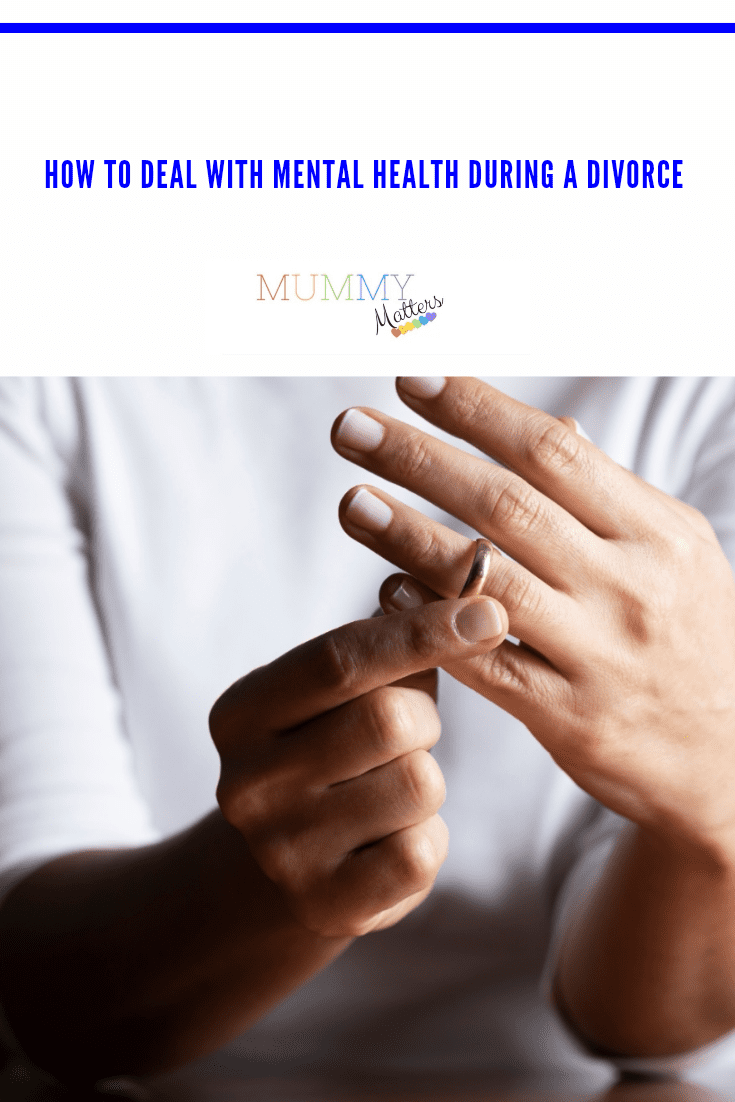Not all marriages are made to last forever, and though you may be confident that you’ve made the right decision to get divorced, that doesn’t mean it won’t have a toll on your mental health.

Divorce is a huge change to your relationship, the relationships around you, and your lifestyle. Sharing children or a home with your ex-spouse can cause further complications. This blog will discuss how you can best deal with mental health during a divorce.
Hire A Family Lawyer
One of the best things you can do for yourself during a divorce or separation is to hire a dedicated family lawyer to handle the legal side of the proceedings. The legalities of a divorce can be very confusing, so it’s helpful to have someone on your side to help you navigate through them.
Especially if you have ended your marriage on negative terms, it’s important to have a legal professional as a middle-man to negotiate on your behalf. This can reduce stress and give you the time to focus on the emotional aspect of the separation.
Keep Your Mind Occupied
Keeping your mind on other things is a great way to re-assert your individuality. You could consider trying out new hobbies or joining a sports club or book club – something that will give you something else to think about.
Having a hobby outside your job will also help you make friends outside the circle you’ve built with your ex-partner, which can be extremely helpful when you’re seeking a fresh start.
Most importantly, it gives you a focus and an opportunity for mindfulness. If you’re able to lose yourself in something productive and entertaining outside of work hours, you’ll have less time to think about the divorce and more time to focus on yourself.
Accept Support From Friends And Family

While it can be tempting to isolate after a traumatic event like a divorce, the best thing you can do is continue to socialise with friends and family. Having a support circle is very important when going through a major life change, but it can only work if you allow the people in your life to help you.
Accepting support can be daunting, but it doesn’t make you weak. There will come a time in everybody’s life when they need a little extra help from those around them, and during a divorce, you may find you benefit greatly from this support system.
Prioritise Your Needs
You can’t help anyone else if you’re not helping yourself, so you must take some time to rest during this emotional period. This can be as simple as taking a couple of days of work to put your feet up or taking a day off to go for a long walk – whatever helps you feel grounded.
Even when it comes to looking after children, it’s more important for them to see you well-rested than tired and snappy. Even if this means you can’t be with them 24/7, they’ll appreciate that you’ve taken the time you need to be present with them.
Change Your Surroundings
Changing your surroundings could be a good idea if your ex-partner has moved out of your shared home and now you’re the sole occupant. As you may have a lot of money tied up in the house itself, this doesn’t mean you need to sell up and move, but you could try:
Donating old furniture/clothes
Donating old things can be a good way to get rid of some memories and start fresh. Donating to a charity shop also means that someone else can make good use of the things you don’t want anymore.
Repainting
Repainting can be a fun D.I.Y project and give your rooms a new look that makes them feel like a brand new space.
Up-cycling
If you have a piece of furniture you like, but you’re not sure fits your style, you can up-cycle it to match your new vibe. Upcycling can be an exciting way to refresh your home and make the space your own.
Go on holiday
If you aren’t ready to change your home, get out of it! A trip away with friends or family can be a great distraction from the stress of a divorce and an opportunity to remind yourself of what matters to you.
Don’t Be Afraid To Grieve
One of the most important parts of finding closure is grieving, and it’s okay to be upset about your divorce. While keeping your mind busy and your social life active is healthy, it’s also important to allow yourself the space to be upset – sometimes, you need to get the feelings out to move on.
One of the healthiest ways to approach this is with the help of a therapist, as they’ll be able to guide you through techniques that can help you organise and understand your feelings.
A good therapist will be able to teach you how to deal with your mental health during a divorce and continue to support you after the legal aspects are settled.

